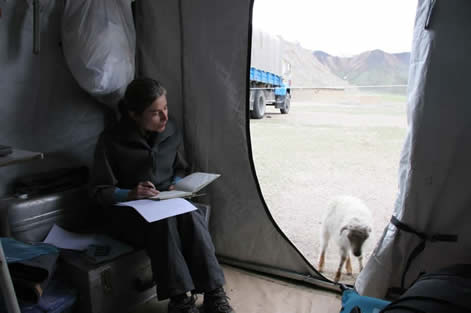General Information
 International Council for Science
International Council for Science
The International Council for Science (ICSU) is a non-governmental organization representing a global membership that includes both national scientific bodies (120 members) and international scientific unions (31 members). Through this extensive international network, ICSU provides a forum for discussion of issues relevant to policy for international science and the importance of international science for policy issues.
Academy of Sciences for the Developing World
TWAS, the academy of sciences for the developing world, represents the best of science in the developing world. Its principal aim is to promote scientific capacity and excellence for sustainable development in the South.
Policy and Global Affairs at the National Academies
The mission of Policy and Global Affairs is to help improve public policy, understanding, and education in matters of science, technology, and health with regard to national strategies and resources, global affairs, workforce and the economy.
 Science and Development Network
Science and Development Network
SciDev.Net – the Science and Development Network – is a not-for-profit organization dedicated to providing reliable and authoritative information about science and technology for the developing world.
Scientists Without Borders aims to mobilize and coordinate science-based activities that improve quality of life in the developing world. The research community is already promoting areas such as global health, agricultural progress, and environmental well-being, but current communication gaps restrict its power. Scientists Without Borders is building a Web portal whose cornerstone is a database that serves as a digital repository for such information. The database will provide a way to match needs with resources. This tool will eventually create a record of accomplishments that also identifies the next steps for solving specific problems. The New York Academy of Sciences and the United Nations Millennium Project conceived Scientists Without Borders, but the initiative belongs to the community. It will launch as a global partnership of leading institutions, academies, organizations, and funding agencies, many of which individually perform heroic acts, but rarely join forces to inspire and empower investigators and organizations to work synergistically.
AAAS-National Academies Compilation of Resources on Scientific Misconduct and Research Integrity has a separate section on International Resources.
The website states “Trust and accountability are integral to the research enterprise and the sharing of scientific information. To demonstrate their commitment to protecting the integrity of science, AAAS, in collaboration with the National Academies, has established this website for students, researchers, administrators, and policymakers.”
Organizing International Meetings
International Visitors’ Office
The International Visitors Office (IVO), a program operated by BISO, is a resource on visa-related issues for the National Academies, Academy members, scientists and students traveling to the United States for professional activities.
Funding for Young Scientists in Developing Countries
American Association of University Women (AAUW) International Fellowships
International Fellowships are awarded for full-time study or research in the United States to women who are not U.S. citizens or permanent residents. Both graduate and postgraduate studies at accredited U.S. institutions are supported.
International Foundation for Science
IFS is a research council with international operations and the mission to build the scientific capacity of developing countries in sciences related to the sustainable management of biological and water resources.
The Pew Latin American Fellows program in the Biomedical Sciences provides support for young scientists from Latin America for post-doctoral training in the United States.
Marie Curie Actions – Research Fellowship Programme (European research grants) are open to researchers of all ages and levels of experience, regardless of nationality. In addition to generous research funding, scientists have the possibility to gain experience abroad and in the private sector, and complete training with competencies or disciplines useful for their careers.
Access to the Scientific Literature for Scientists in Developing Countries
International Network for the Availability of Scientific Publications (INASP)
The mission of INASP is to enable a sustainable network of stakeholders that owns and drives access, use, dissemination and communication of research information.
Health Internet Access to Research Initiative (HINARI)
The HINARI program, set up by WHO together with major publishers, enables developing countries to gain access to one of the world’s largest collections of biomedical and health literature. Over 3750 journal titles are now available to health institutions in 113 countries, benefiting many thousands of health workers and researchers, and in turn, contributing to improved world health.
Permits
Permits for collecting, importing and export, and dealing with special organisms and communities are described at the following U.S. government sites. These sites are not exhaustive.
The U.S. Fish and Wildlife Service has information on permits for collecting, import/export, and special topics. http://www.aphis.usda.gov/plant_health/permits/index.shtml
The USDA Animal and Plant Health Inspection Services has similar information.
